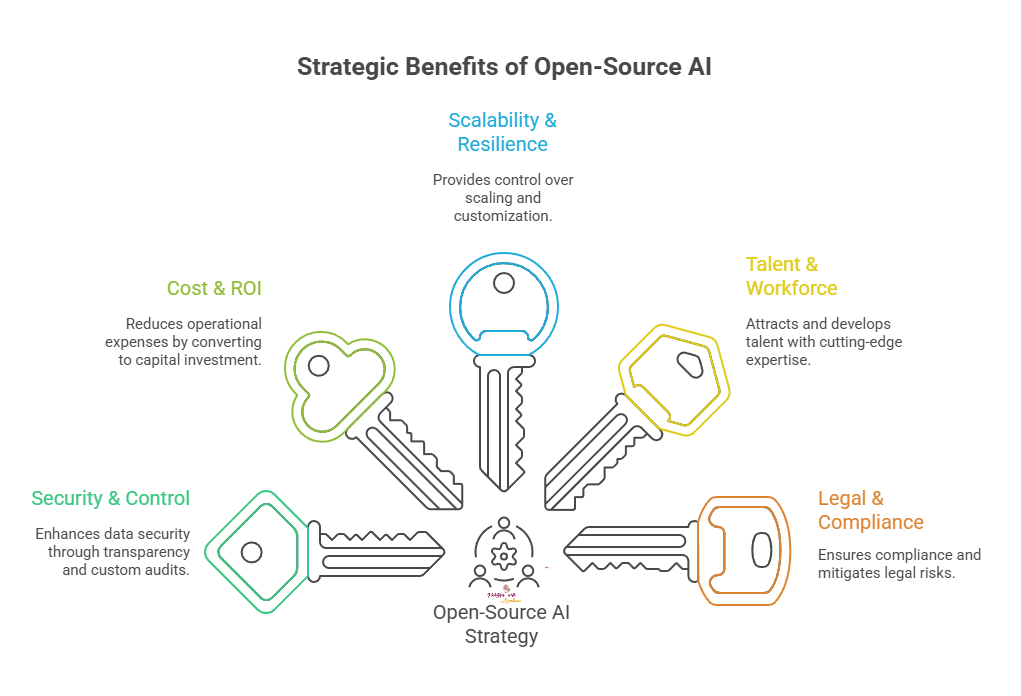The Stack is a Monopoly
How a handful of companies are cornering the market on generative AI.
"When the algorithms get smarter, our ethics must get stronger." — Nadina D. Lisbon
Hello Sip Savants! 👋🏾
If you've been following along, you know about my guide, Mindful Prompting for Deeper AI: The CBJ Method. It's a true cheat sheet for getting exactly what you need from AI, with a simple, three-step system and 50 ready-to-use prompts for everything from content creation to business strategy.
The special introductory price of $9.99 has ended, but you can still use the special promo code CBJ20 to get 20% off the regular price of $11.99. This brings the price down to just $9.59. This code will remain active through September 30th!
This week, as I was scrolling through the news, I saw a headline about an antitrust lawsuit filed by Elon Musk's companies against Apple and OpenAI, alleging they are stifling AI competition¹. This sparked a bigger question for me: Are we on the verge of an AI oligopoly? It's easy to get caught up in the "AI boom," but we need to pause and look at who's shaping the future of this technology and what that means for all of us. I'll be sharing my extensive research and thoughts on the AI boom next week, which will be available as part of a new series of digital resources. Stay tuned.
3 Tech Bites
The Power Players
Today's AI landscape is dominated by a handful of giants—Google, Microsoft, OpenAI, and a few others. They control the immense computational power, vast datasets, and top-tier talent required to build and deploy "cutting-edge" models like the recently released GPT-5². This concentration makes it incredibly difficult for smaller startups to compete, leading to a "winner-take-all" dynamic.
🔗 The Strategic Alliances
Big tech companies aren't just competing; they're also forming strategic partnerships. Look at Microsoft's deep integration with OpenAI or Google's acquisition of DeepMind. These alliances pool resources and further consolidate power, effectively creating a high barrier to entry for newcomers. It’s less about a single company dominating and more about a few powerful entities working together to control the market.
🏛️ The Open Source Movement's New Contenders
While big tech dominates, the open-source community is building powerful alternatives. Just this month, Cohere released its new Command-A Reasoning model, an open-weights model designed for complex enterprise tasks³. This and other models like Meta's LLaMA and Mistral AI's creations offer powerful reasoning capabilities and can be run on local hardware, providing a viable path for companies and individuals to innovate outside the walled gardens of the tech giants.
5-Minute Strategy
🧠 Top of Mind for the C-Suite
For executive leaders, pushing back against a tech oligopoly is a strategic imperative. Open-source AI provides a path to mitigating vendor lock-in and enhancing organizational resilience.
The Strategic Rationale
CTO (Security & Control)
Proprietary models are black boxes. Open-source models offer transparency. By deploying on-premise or in your private cloud, your team gains full control over data security, enabling custom audits and protecting sensitive information.
CFO (Cost & ROI)
The recurring costs of proprietary APIs can escalate unpredictably. Shifting to open-source models turns a variable operational expense into a more predictable capital investment in internal infrastructure, offering significant cost savings at scale.
CIO (Scalability & Resilience)
Vendor lock-in limits your options. A decentralized AI strategy means your organization controls the scaling roadmap and can fine-tune models to your specific business needs without waiting on a vendor's product cycle.
CHRO (Talent & Workforce Planning)
The shift to open-source AI requires a focus on upskilling and attracting talent with specific, in-demand expertise. Embracing open-source signals a commitment to cutting-edge technology and human-centric roles, positioning the organization as an innovator in the talent market.
CLO (Legal & Compliance)
Using open-source models introduces new legal considerations, from licensing compliance to data provenance and potential copyright risks¹. A clear, documented open-source strategy ensures the organization remains compliant and mitigates legal exposure.
Execution in Focus
To test this strategy, your team can launch a low-risk, no-cost pilot to gather the data needed for a comprehensive business case.
Define a Use Case: Pick a non-critical, repeatable task for automation.
Run an Open-Source Model: Your team will select a lightweight, open-source model from a hub like Hugging Face.
Deploy Locally: Using simple tools like Ollama, the model is deployed on a single machine, keeping your data secure while you evaluate its performance against proprietary tools.
1 Big Idea
💡 The Strategic Risk of a Concentrated AI Future
The conversation around AI often focuses on its technical capabilities: how fast it can write, how well it can reason, or how much data it can process. We rarely talk about the strategic risk of a centralized AI ecosystem. For executives, this isn’t a theoretical debate; it's a critical vulnerability that impacts brand reputation, innovation, and long-term competitiveness. When a handful of companies control the most powerful AI, they also control the narratives, the access, and the ethical guardrails, creating a single point of failure.
This concentration isn't just an economic issue; it’s a social and ethical one with direct business consequences. Who decides what data is "good" enough to train an AI model? In a highly concentrated market, these decisions are made by a very small group of people, which can embed biases into the technology. For a company, this means running the risk of reputational damage, customer distrust, and even legal action if the AI systems they rely on produce biased or unfair outcomes. The loss of diverse thought in development stifles innovation, a key driver of growth.
The true risk of an AI oligopoly isn’t just a lack of competition; it’s a lack of perspective. It's the risk of building a future that reflects the biases and priorities of the few, not the many. As our critical infrastructure becomes increasingly reliant on AI, from healthcare diagnostics to financial systems, the need for diverse, decentralized, and transparent AI development becomes paramount. We have to demand more than just efficiency; we have to demand a more equitable and human-centered approach to AI's evolution, one that is both an ethical responsibility and a smart business decision.
What's your biggest concern about AI's power being concentrated in so few hands?
P.S. If you found these AI insights valuable, a contribution to the Brew Pot helps keep the future of work brewing.
P.P.S. Know someone else who could benefit from a sip of CRM wisdom? Share this newsletter and help them brew up stronger customer relationships!
Resources
U.S. News & World Report. (2025). Elon Musk Accuses of Apple and OpenAI of Stifling AI Competition in Antitrust Lawsuit.
Data Centre Magazine. (2025). Capacity Europe 2025: Shaping Global Digital Infrastructure.
Recommendation
I also wanted to share a great resource I've recently started following on Substack: Salesforce Pulse. It's an essential tool for anyone in the Salesforce ecosystem to stay informed and competitive. You should definitely check it out!
Sip smarter, every Tuesday. (Refills are always free!)
Cheers,
Nadina
Host of TechSips with Nadina | Chief Strategy Architect ☕️🍵



